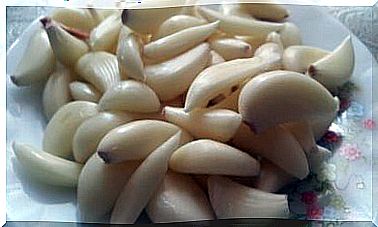Passionflower Against Insomnia And Nervousness
The versatility of passionflower makes it one of the best natural remedies to combat nervousness. In addition, it can be combined with other plants with similar relaxing properties.
Passionflower, passionflower, passion flower or passion fruit. Many words refer to this powerful medicinal plant with excellent properties for our nervous system. It is not only one of the most suitable for nervousness problems, but also for all those symptoms derived from it, such as palpitations, stuttering, muscle spasms, etc.
In this article we explain to you what cases it is recommended for, as well as different ways to consume it to benefit from its relaxing effects.
The passionflower or passionflower, whose most used varieties are the red ( passiflora incarnata ) and the blue ( passiflora caerulea ), is a medicinal plant with mainly sedative properties. Its leaves and flowers have been used for decades and today it is marketed in multiple formats thanks to its powerful benefits.
It is also known as the passion flower or passion fruit, the word that gives its fruit its name. This is consumed and cooked in many countries to make desserts and drinks.

When is it recommended?
Passionflower is one of the most suitable medicinal plants to treat various nervous and emotional states. Since this plant lowers blood pressure and has sedative and hypnotic properties ; It is used to reduce anxiety and nervousness. Also for tachycardia, anxiety or insomnia, as noted in this animal study.
Passionflower will allow us to naturally treat these imbalances when they occur occasionally, sporadically or in their early stages. If we suffer from these nervous disorders on a regular or habitual basis, we should consult with our family doctor.
It is also not recommended to take passionflower-based supplements to pregnant and lactating women without medical supervision.
Other symptoms
Passionflower has the great advantage that, unlike conventional drugs, it relaxes our nervous system. But without depressing it or negatively affecting our vitality.
This plant allows us to act on the effects of disorders that can also be derived from an altered nervous system. For example, hormonal or thyroid imbalances, although there is not enough scientific evidence about it.
It can also help to reduce the nervousness derived from various specific situations. For example, public appearances, examinations or other circumstances that cause us significant stress, as evidenced in this article published in the International journal of clinical and experimental medicine. Thus, avoid palpitations, stuttering, frequent urination, sweating, intestinal spasms or hypertension.
Passionflower infusion
The gentlest and cheapest way to take passionflower is as an infusion. We prepare it as follows:
- For each cup of water we add two teaspoons of the dried and crushed plant.
- Let the water boil, turn off the fire, put the plants in the water and let it rest with the covered container for 10 minutes.
- Strain the infusion and, if you like, sweeten it with a little honey or stevia.

Passionflower syrup
We propose another way to prepare a medicinal passionflower tonic, but you must take into account its alcoholic content.
Ingredients:
- 70 gr of passionflower.
- 1 liter of white wine.
- 40 gr of honey.
Elaboration:
- The passionflower and the wine are left to rest in a hermetically closed glass bottle. The environment must be in the dark, in a dry place, for a week.
- We filter the liquid and sweeten it with honey.
We will take a small glass (75 ml) one hour before going to bed.
Other ways to take it to combat nervousness
For those less skilled in the kitchen, passionflower is also available at any herbalist and in some pharmacies in different formats: tincture, extract, tablets, capsules, etc. We can choose any of them and follow the manufacturer’s instructions.
However, we can combine or alternate the passionflower with other plants with similar relaxing properties. For example, with valerian, also indicated for nervousness or insomnia. Melissa or lemon balm and linden are also known for their relaxing functions.
Images courtesy of Chamo Estudio, Humberto Terenziani and Daniel Friedle.









